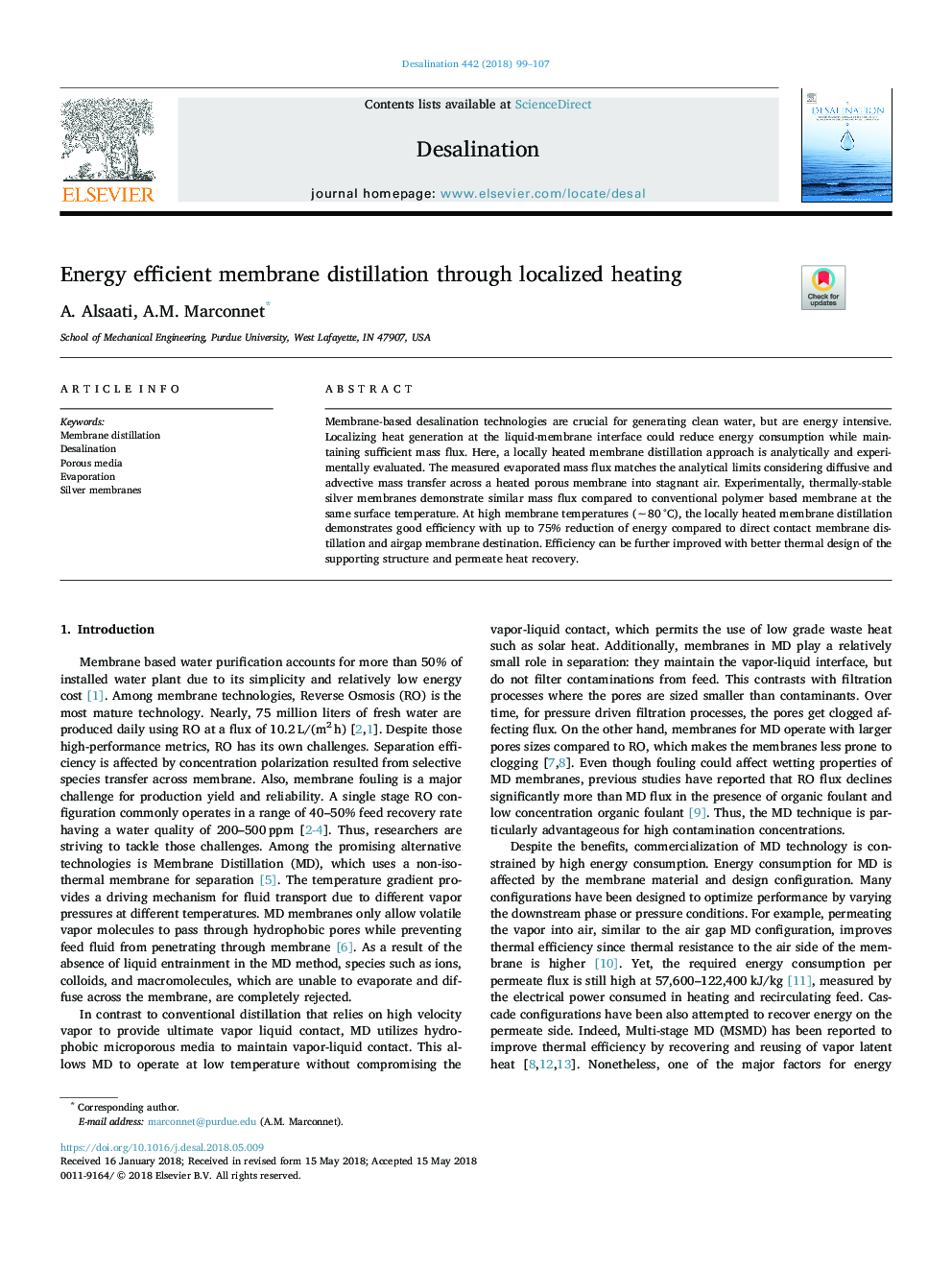| Article ID | Journal | Published Year | Pages | File Type |
|---|---|---|---|---|
| 7007730 | Desalination | 2018 | 9 Pages |
Abstract
Membrane-based desalination technologies are crucial for generating clean water, but are energy intensive. Localizing heat generation at the liquid-membrane interface could reduce energy consumption while maintaining sufficient mass flux. Here, a locally heated membrane distillation approach is analytically and experimentally evaluated. The measured evaporated mass flux matches the analytical limits considering diffusive and advective mass transfer across a heated porous membrane into stagnant air. Experimentally, thermally-stable silver membranes demonstrate similar mass flux compared to conventional polymer based membrane at the same surface temperature. At high membrane temperatures (â¼80â¯Â°C), the locally heated membrane distillation demonstrates good efficiency with up to 75% reduction of energy compared to direct contact membrane distillation and airgap membrane destination. Efficiency can be further improved with better thermal design of the supporting structure and permeate heat recovery.
Related Topics
Physical Sciences and Engineering
Chemical Engineering
Filtration and Separation
Authors
A. Alsaati, A.M. Marconnet,
